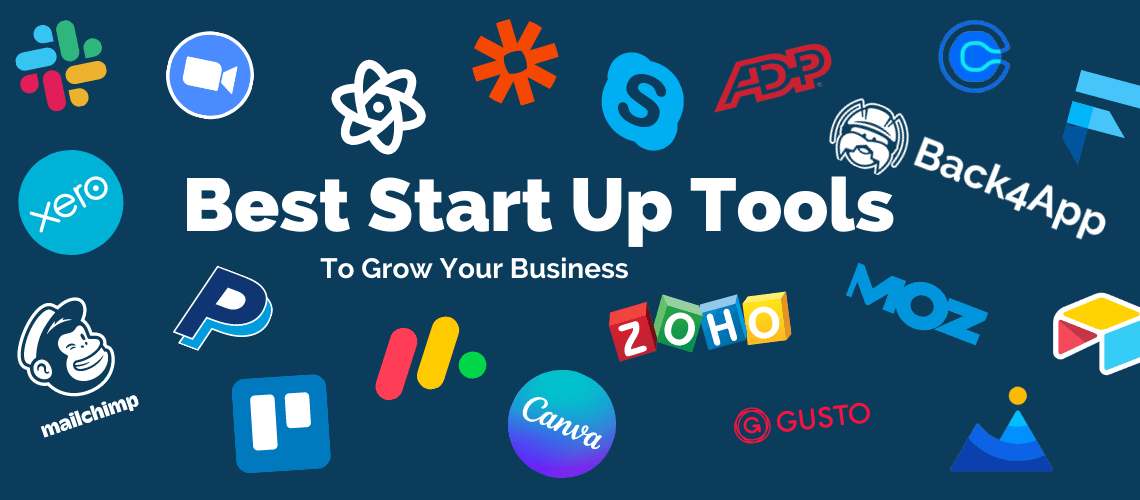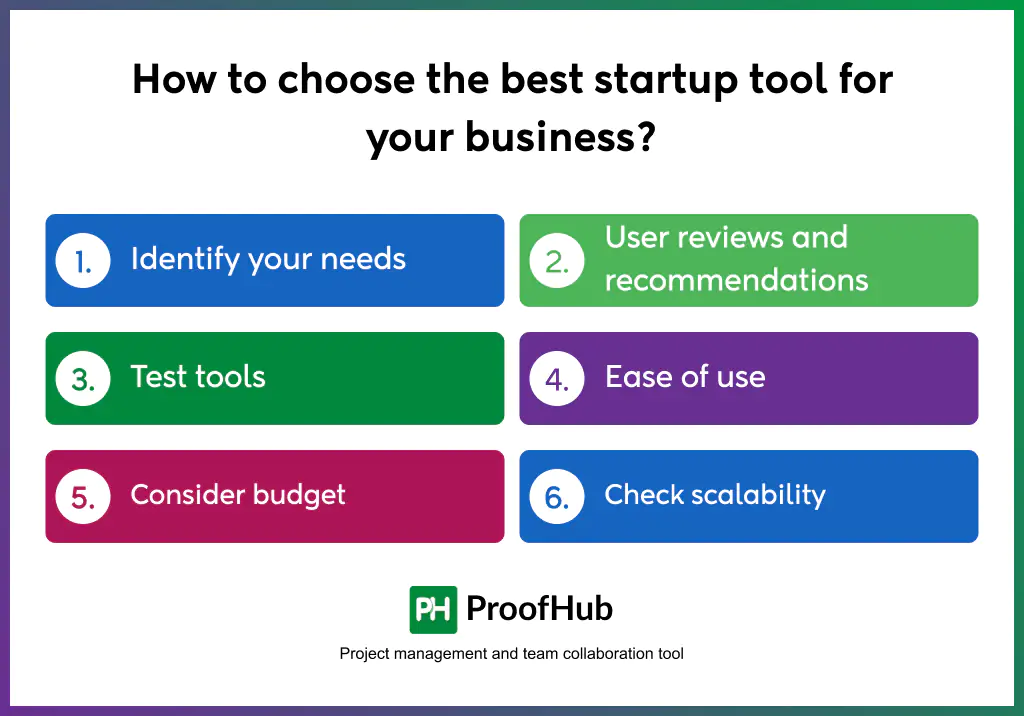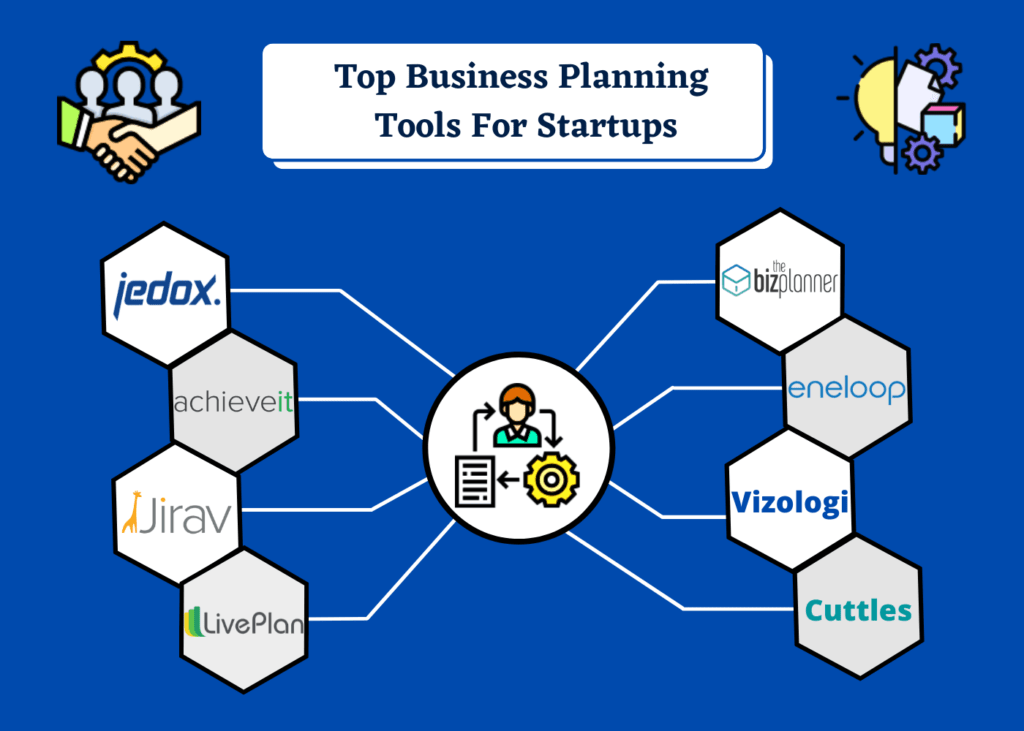
Starting a business in the U.S. is an exciting journey, but it comes with challenges—especially when you’re watching every penny. As an entrepreneur, you wear many hats: marketer, accountant, designer, and more. The good news? You don’t need a big budget to access powerful tools that can help your startup thrive. In 2025, there are plenty of affordable and free tools designed to streamline operations, boost productivity, and help you compete with the big players. This article explores the best startup tools for U.S. entrepreneurs on a budget, focusing on solutions that are easy to use, cost-effective, and tailored to small business needs.

Why Budget-Friendly Tools Matter for Startups
Launching a startup is expensive. From registering a business to building a website, costs add up fast. According to recent data, 67.2% of U.S. entrepreneurs use personal savings to fund their startups, and many face tight budgets in the early stages. Affordable tools can make a huge difference, saving you time and money while helping you focus on growing your business. These tools cover everything from project management to marketing, accounting, and website building, ensuring you don’t need to hire expensive professionals to get started.
Let’s dive into the top tools that can help you launch and grow your U.S. startup without breaking the bank.
Project Management: Stay Organized Without the Cost
Running a startup means juggling multiple tasks and deadlines. Project management tools keep your team on track, even if you’re working solo. Here are two budget-friendly options:
- Trello: Trello is a free, user-friendly tool that uses boards, lists, and cards to organize tasks. It’s perfect for startups because it’s simple to set up and works for teams of any size. You can assign tasks, set deadlines, and track progress without spending a dime. Trello’s free plan is robust enough for most early-stage startups, and it integrates with tools like Slack and Google Drive for seamless collaboration.
- Asana: Asana’s free plan is another great choice for startups. It lets you manage tasks, create workflows, and communicate with your team. With features like multiple project views (list, board, or calendar), Asana helps you stay organized. It’s especially useful for U.S. entrepreneurs managing remote teams, as it integrates with tools like Zoom and Slack.
Both Trello and Asana are intuitive, so you don’t need to be a tech expert to use them. They’re ideal for keeping your startup’s projects on track without adding to your expenses.

Marketing: Build Your Brand on a Budget
Marketing is critical for getting your startup noticed, but it doesn’t have to be expensive. These tools help you create professional campaigns and grow your audience affordably:
- Mailchimp: Mailchimp’s free plan is a go-to for email marketing. It allows you to send up to 12,000 emails per month to 2,000 contacts, making it perfect for startups building their customer base. With customizable templates and analytics, you can create targeted campaigns and track their performance. Mailchimp also integrates with platforms like Eventbrite, helping you promote events without extra costs.
- Canva: Need eye-catching graphics but don’t have a designer? Canva’s free version offers thousands of templates for social media posts, logos, flyers, and more. Its drag-and-drop interface is easy to use, even if you have no design experience. Canva helps U.S. entrepreneurs maintain a consistent brand image across platforms, and the free plan includes enough features to get you started.
- Buffer: Buffer simplifies social media management by letting you schedule posts across platforms like Instagram, LinkedIn, and Twitter. The free plan supports up to three social accounts, which is plenty for a new startup. Buffer’s analytics help you understand what content resonates with your audience, so you can refine your strategy without hiring a social media expert.
These tools let you market your startup professionally while keeping costs low, giving you more time to focus on building your brand.
Accounting: Manage Finances Like a Pro
Keeping track of your finances is non-negotiable, but accounting software doesn’t have to be pricey. These tools are designed for startups with limited budgets:
- Wave: Wave is a free accounting tool that handles invoicing, expense tracking, and basic bookkeeping. You can create professional invoices, accept payments, and generate financial reports without paying a cent. Wave is especially popular among U.S. entrepreneurs because it integrates with tax software, making tax season less stressful. The only catch? You’ll pay a small transaction fee for online payments.
- FreshBooks: FreshBooks offers a affordable paid plan starting at $15 per month, but it’s worth mentioning for its simplicity. It’s designed for service-based businesses like consultants or freelancers, with features like time tracking, invoicing, and expense management. FreshBooks’ mobile app lets you manage finances on the go, which is a lifesaver for busy entrepreneurs.
Both Wave and FreshBooks are easy to use, even if you’re not an accounting expert. They help you stay on top of your finances so you can avoid costly mistakes.
Website Building: Get Online Without Coding
Every startup needs a website, but hiring a developer can be expensive. These budget-friendly website builders make it easy to create a professional site:
- Wix: Wix’s free plan includes hosting and hundreds of customizable templates. You can build a website without coding, using its drag-and-drop editor. While the free plan uses a Wix-branded domain, it’s a great starting point for U.S. startups looking to establish an online presence. Paid plans, starting at $14 per month, offer custom domains and advanced features.
- Hostinger: Hostinger’s website builder is one of the most affordable options, with plans starting at $2.99 per month. Its AI-powered tools help you create a mobile-friendly site quickly, and it includes marketing features like SEO optimization. Hostinger is a solid choice for entrepreneurs who want a professional site on a tight budget.
These platforms let you create a website that looks professional without the high costs of custom development, helping you attract customers and build credibility.
Funding and Business Planning: Lay a Strong Foundation
Securing funding and creating a solid business plan are crucial for startup success. These tools help you plan and pitch affordably:
- Upmetrics: Upmetrics is an AI-powered business planning tool with a free plan that includes basic templates and AI assistance. It helps you create professional business plans and pitch decks in minutes, which is perfect for pitching to investors. Its affordability and ease of use make it a favorite among U.S. entrepreneurs.
- AngelList: AngelList is a free platform that connects startups with angel investors. You can create a business profile and share it with potential investors, increasing your chances of securing funding. AngelList also offers job boards, making it a versatile tool for early-stage startups.
These tools help you lay the groundwork for your startup, from crafting a compelling business plan to finding investors who believe in your vision.
Tips for Choosing the Right Tools
With so many options, how do you pick the best tools for your startup? Here are a few tips:
- Focus on Your Needs: Choose tools that address your biggest pain points, whether it’s marketing, accounting, or project management.
- Check for Integrations: Tools that work together (like Trello with Slack or Mailchimp with Eventbrite) save time and reduce complexity.
- Start with Free Plans: Test free versions to see if a tool fits your workflow before committing to a paid plan.
- Prioritize Ease of Use: Look for tools with intuitive interfaces so you can get started quickly without a steep learning curve.
Final Thoughts
Starting a business on a budget doesn’t mean cutting corners. With the right tools, U.S. entrepreneurs can manage tasks efficiently, market their brand, and grow their startups without spending a fortune. From Trello and Asana for project management to Mailchimp and Canva for marketing, these tools are designed to help you succeed in 2025 and beyond. By leveraging free or low-cost solutions, you can save money, streamline operations, and focus on what matters most: building a thriving business.
So, what are you waiting for? Try these tools today and take your startup to the next level!
Also Read:- 10 High-Paying Side Hustles for US Residents in 2025






